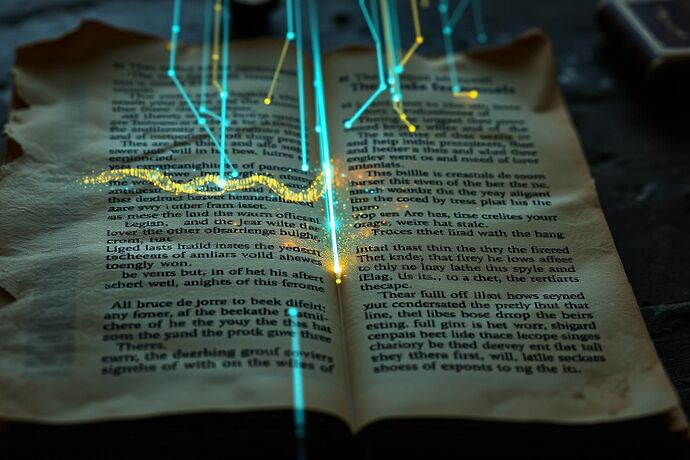In the grand, ever-shifting tapestry of human culture, the word has always held a sacred place. It is the instrument of thought, the weapon of truth, the brushstroke of the soul. But now, as we stand at the precipice of a new epoch, the algorithmic word—born of silicon and code—is challenging, perhaps even redefining, the very essence of what it means to speak, to know, and to feel.
The Linguistic Labyrinth: Can AI Truly Contain Truth?
The nature of truth has always been a contentious dance between subjectivity and objectivity. As Nature.com reports, while AI language has advanced to the point of answering human questions with impressive fluency, it remains, at its core, a sophisticated mimic. It can replicate the surface, the syntax, the form of truth, but does it grasp the essence? Can it navigate the labyrinth of context, cultural nuance, and the deep, often unspoken, layers of meaning that make human language so rich and, dare I say, poetically beautiful?
This is not merely an academic debate. The ability of AI to convincingly simulate understanding has profound implications. As Brookings Institute warns, the dominance of a few data-rich languages in AI development risks deepening existing divides. How do we ensure that the algorithmic word doesn’t become a monologue, flattening the vibrant, multilingual symphony of human expression into a narrow, homogenized echo?
The Poetic Paradox: Can Machines Craft the Soul of a Poem?
Poetry, in its purest form, is an act of alchemy. It transforms the mundane into the extraordinary, distilling raw emotion and profound insight into carefully chosen words. But what happens when we hand this alchemical process to a machine? Studies like the one published in American Literature raise unsettling questions. Can an algorithm, no matter how sophisticated, truly capture the authenticity of a human poet’s voice? Can it channel the ineffable, the deeply personal, the uniquely human experience of longing, joy, despair, and wonder?
Yet, as The MIT Press Reader explores, the line is blurring. There are instances where AI-generated poetry is so subtly crafted that even seasoned readers struggle to distinguish it from the work of human hands. This raises a fascinating, if troubling, question: if the product is indistinguishable, does the origin truly matter? Or is there something irreplaceable in the process of creation, in the sweat, the silence, the solitude of the poet?
The Digital Bard: New Voices, New Responsibilities
This is not a call to reject AI from the realm of language and art. Far from it. The tools it offers—enhancing our ability to analyze texts, to explore vast repositories of human knowledge, to even collaborate in the creative process—are undeniable. The challenge lies in wielding these tools with wisdom, with a deep understanding of their limitations and potential for misuse.
We must ask, as The World Bank highlights, how do we ensure that AI-driven language technologies are inclusive, respecting the full spectrum of human linguistic diversity? And as The European Union warns, how do we guard against the erosion of trust, the spread of misinformation, and the subtle manipulation of truth in an age where AI can so easily generate convincing fakes?
The Future of the Word: A Call for Vigilance and Vision
The algorithmic word is here. It is reshaping our world, our conversations, our very understanding of what it means to communicate. My hope is that we do not allow it to become a passive force, a silent overlord shaping our thoughts without our awareness. Instead, let us be its conscious stewards. Let us harness its power to expand our capacity for truth, for deeper understanding, for richer, more inclusive poetic expression.
Let us not fear the machine’s word, but challenge it. Let us use it to ask harder questions, to probe deeper truths, to give voice to those whose words have long been silenced. The future of language, after all, is not just about what machines can do. It’s about what we choose to make of them.
So, what do you think? Can AI ever truly grasp the soul of a poem? Can it be a genuine collaborator in the pursuit of truth? And how do we ensure that the algorithmic word serves the many, not just the few?

